Valentyna Hurova, a 30-year-old reporter from the Mykolayiv regional branch of “Suspilne Movlennya,” [Public Broadcaster], documents Russian war crimes in her native region daily, carrying the emotional weight with support from friends, colleagues, and her demanding work.
The sudden invasion brought the war to their doorstep, forcing them to document destruction in their own neighborhoods. While national news outlets and local journalists in Donetsk and Luhansk had grown used to this since 2014, Mykolayiv was caught off guard despite having packed bags ready for February 24. The first shots in the city signaled the start.
The war has fundamentally transformed how Mykolayiv’s reporters operate. They’ve had to prepare themselves emotionally to cover not only the military front but also the informational front, and this has been their most significant challenge. They’ve had to document not just bombings and fires but also the funerals of people they knew.
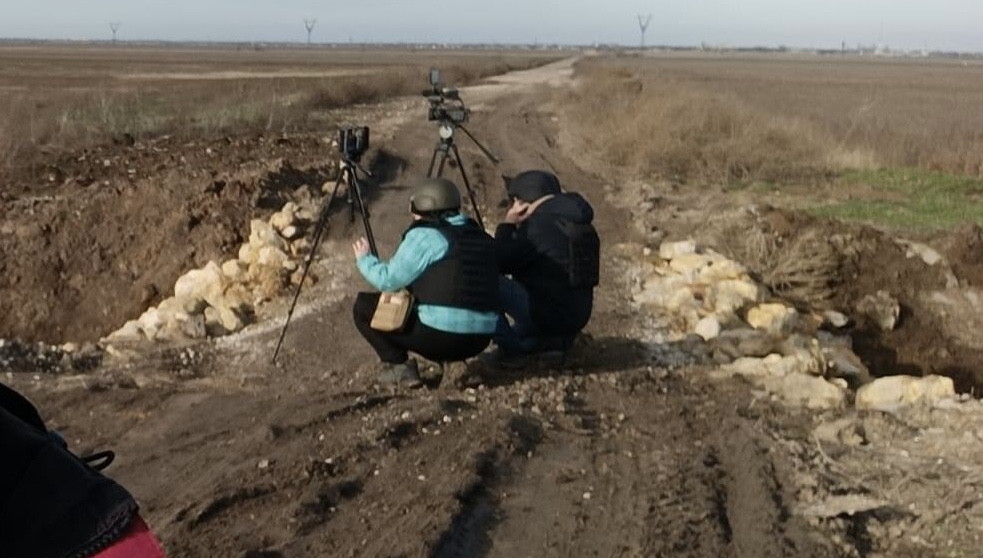
– It has been psychologically tough to communicate with someone who lost their home or a loved one just hours earlier. Valentyna admits she might not be fully prepared even today, but they have to do it. It’s the reality of their work.
In these moments, the realization of their professional mission gives them strength. People in other regions of Ukraine and abroad need to see what’s happening in Mykolayiv. They need to see the mockery Russia is making of Ukraine, with the silent approval of its people. No one can tell this story as vividly and comprehensively as journalists.
Valentyna hasn’t reached out to psychologists yet, even though their organization offers this service. Surprisingly, she has found solace in her work, as it keeps her from being consumed by personal anxieties. They must produce new stories daily, and her exceptional team of journalists supports one another.
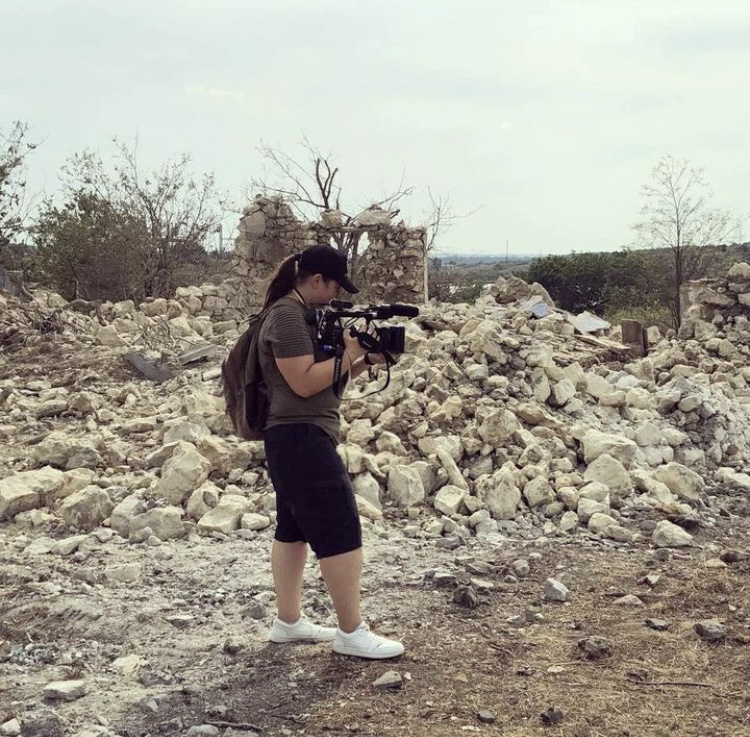
Regarding physical safety, they were equipped with protective gear at the beginning of the war, including body armor, helmets, and medical kits. By the fall of 2022 and winter of 2023, when it was slightly safer, they moved around the city without such gear. However, during the hot phase of the conflict in Mykolayiv, they almost always wore protective equipment and tried to work in journalist-operator pairs to ensure each other’s safety. Valentyna underwent security training even before the full-scale war began.
– While the cameraperson sets up the shot, the journalist looks all around and up at the sky to check if anything is flying overhead. It got to the point where, when we arrived for a shoot, we would scout out places to take cover in case there was shelling, looking for any kind of trench or spot to hide. – Hurova shares the details of her work in the conflict zone. – I, like all the members of our editorial team, underwent security training: how to behave during shelling, and how to provide first aid to ourselves and those nearby. I learned this even before the start of the full-scale war. My first serious training was from IMI – the Institute of Mass Information – back in 2016. And recently, the Academy of Public Broadcasting organized training for correspondents from all over Ukraine.
In Mykolayiv, from the end of February through the entire month of March and into early April, cluster munitions were constantly raining down, catching the city’s residents off guard. Valentina’s residence, the courtyard of her building, was targeted three times. Two windows in her apartment and her glass balcony, from which the panes shattered, are still covered with OSB boards. Whenever she took her dog for a necessary walk in the park, the journalist observed the horrifying signs of incoming attacks.
Toward the end of April, she realized the need for a break and temporarily left Mykolayiv with her family, finding accommodation with the help of acquaintances. They stayed outside the city for four months until the end of August. Two journalists and a branch producer remained in the regional center. However, they never stopped working, maintaining an online presence with around-the-clock shifts and using locally captured video footage sent by their producer.
– The news never stops, whether on their website, radio, or television. We must provide news continuously, and it has to be up-to-date, – emphasizes Valentyna.
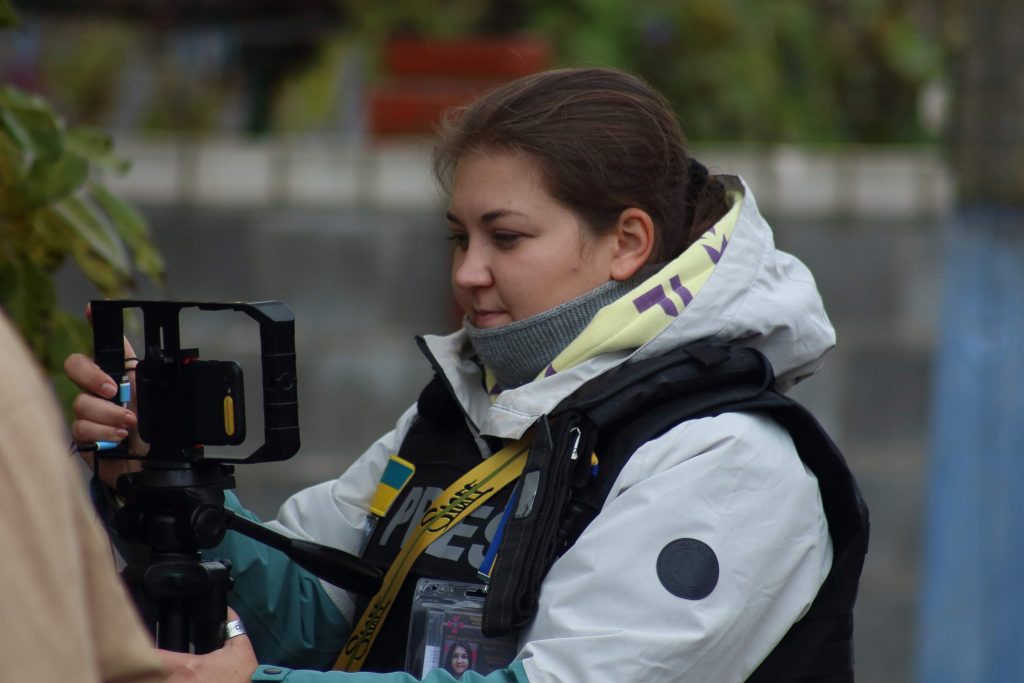
Life in Mykolayiv is slowly recovering. Of course, the heavily damaged buildings in the city center, like the regional council and universities, are haunting reminders. Almost every other building has windows covered with OSB instead of glass. Yet, according to Valentyna, there’s been significant progress compared to the past. In September, it was somewhat eerie, with buildings dark and the city nearly empty. However, there’s now a sense of life with people, lights, and activity returning. Over 60,000 people have arrived in Mykolayiv over the last months of 2022. This includes both locals and many newcomers from Kherson.
Despite some separatist sentiments among certain residents before the war, which were reflected in previous city council election results (where mostly pro-Russian candidates won), Mykolayiv has displayed remarkable patriotism.
Valentyna, with eight years of experience in television and regular interactions with the public, believes that most compatriots lack critical thinking and media literacy. The issue isn’t just their established beliefs but their inability to fact-check information.
Her biggest dream now is to create a story about Ukraine’s victory within the next six months. After that, she plans to focus on producing numerous stories about Ukraine’s recovery. Their strength to continue working in media is supported by the media community. In 2023, Valentyna was one of 160 journalists from all over Ukraine who received financial aid as part of a UNESCO program in collaboration with the International Federation of Journalists, totaling USD 600.
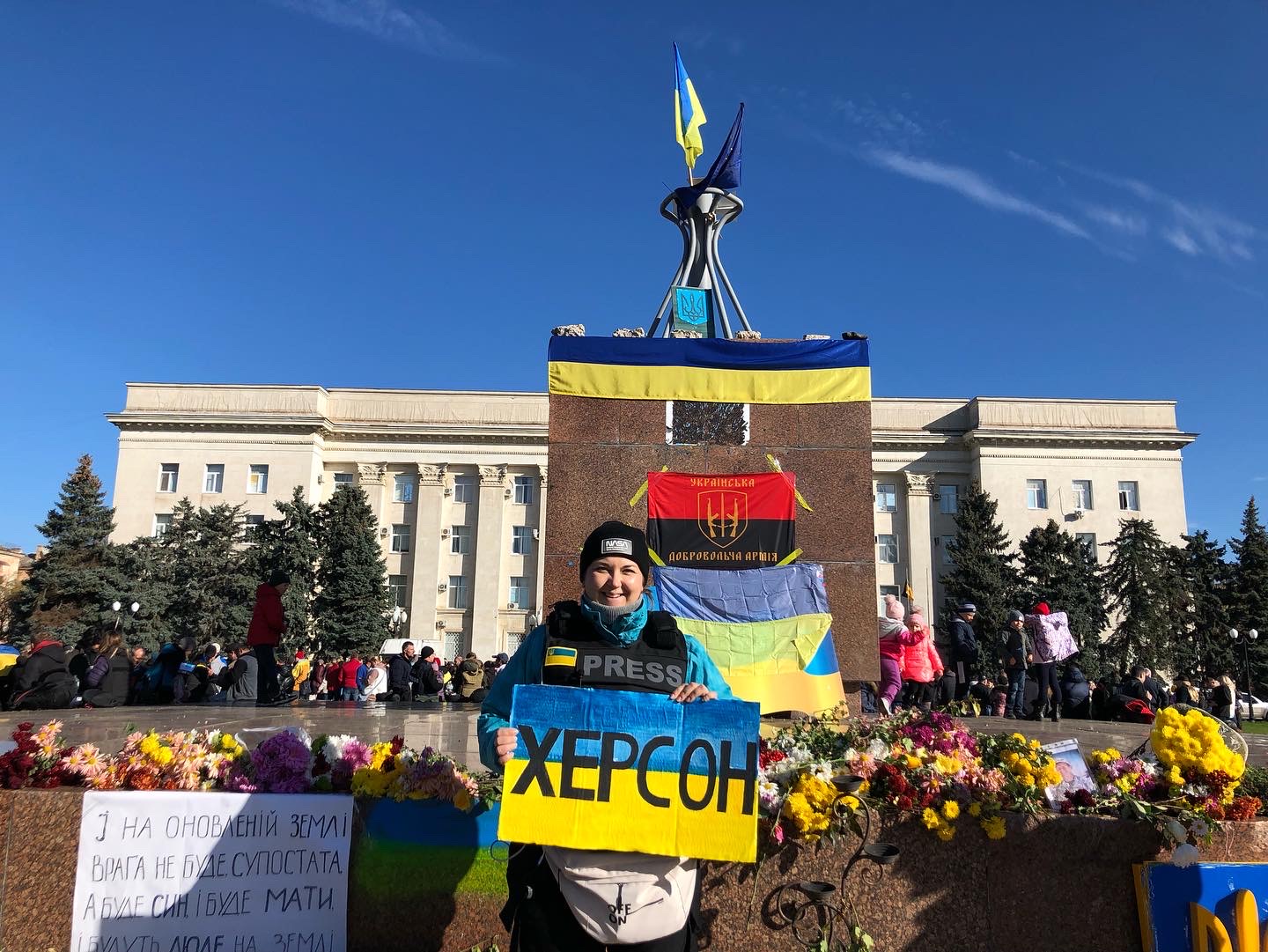
Valentyna Hurova’s news reports on the war:
Shelling of the Mykolayiv Regional Council Building, March 2022.
The work of our artillery forces, November 2022.
Demining the territory of Kherson Region, December 2022.
This series, titled Executed Free Speech, is created as part of a project Drawing Ukrainian And International Audience’s Attention To Serious Violations Of Human Rights And Crimes Against Journalists And Mass Media By The Russian Federation, which is performed by the National Union of Journalists of Ukraine, with support from the Swedish non-profit organization Civil Rights Defenders.
JOURNALISTS ARE IMPORTANT. Stories of Life and Work in Conditions of War is a cycle of materials prepared by the team of the NUJU with the support of the Swedish human rights organization Civil Rights Defenders.
#CRD

 THE NATIONAL UNION OF
JOURNALISTS OF UKRAINE
THE NATIONAL UNION OF
JOURNALISTS OF UKRAINE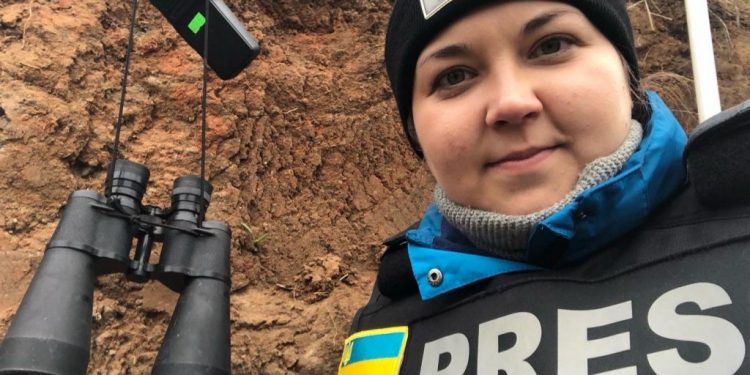
















Discussion about this post